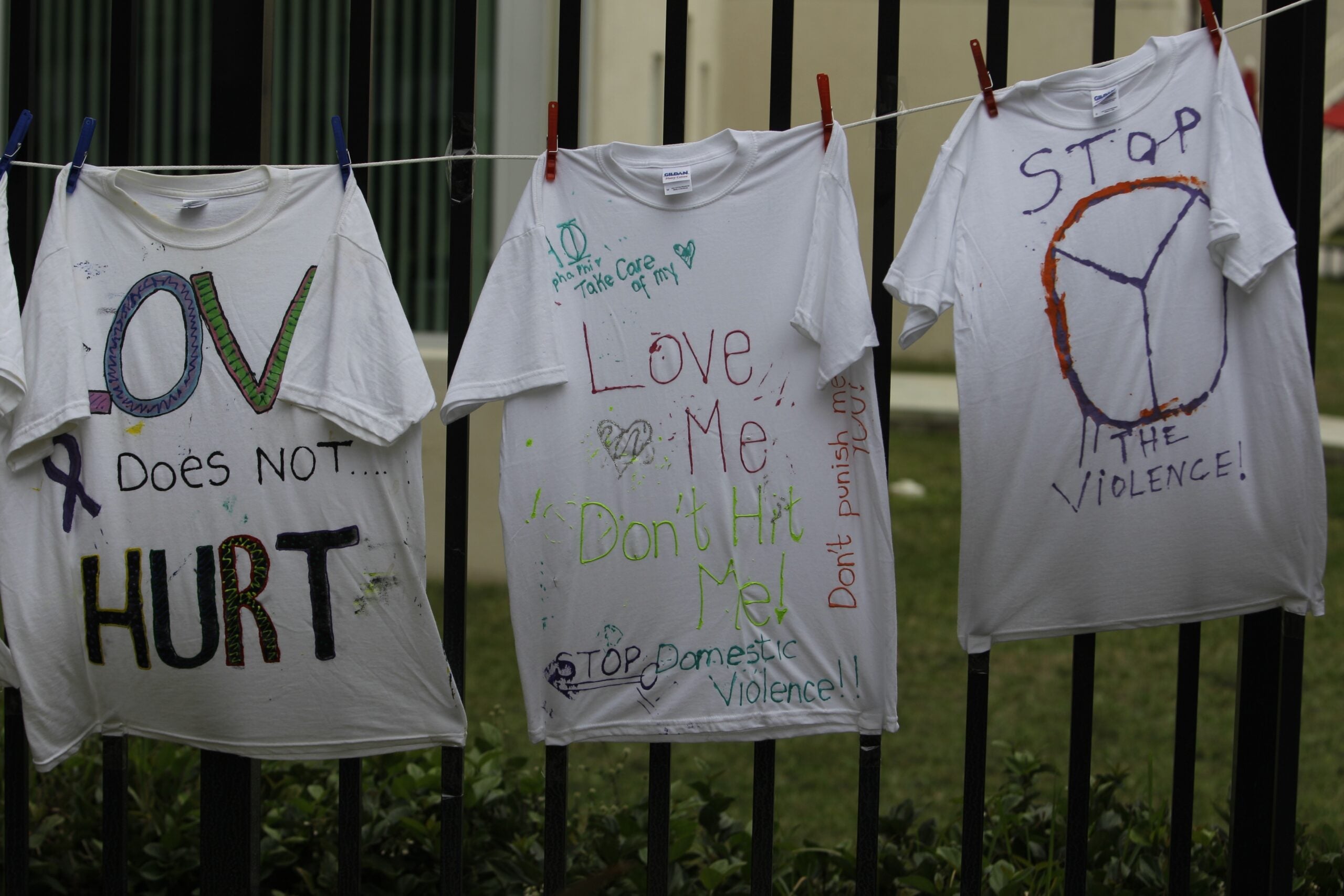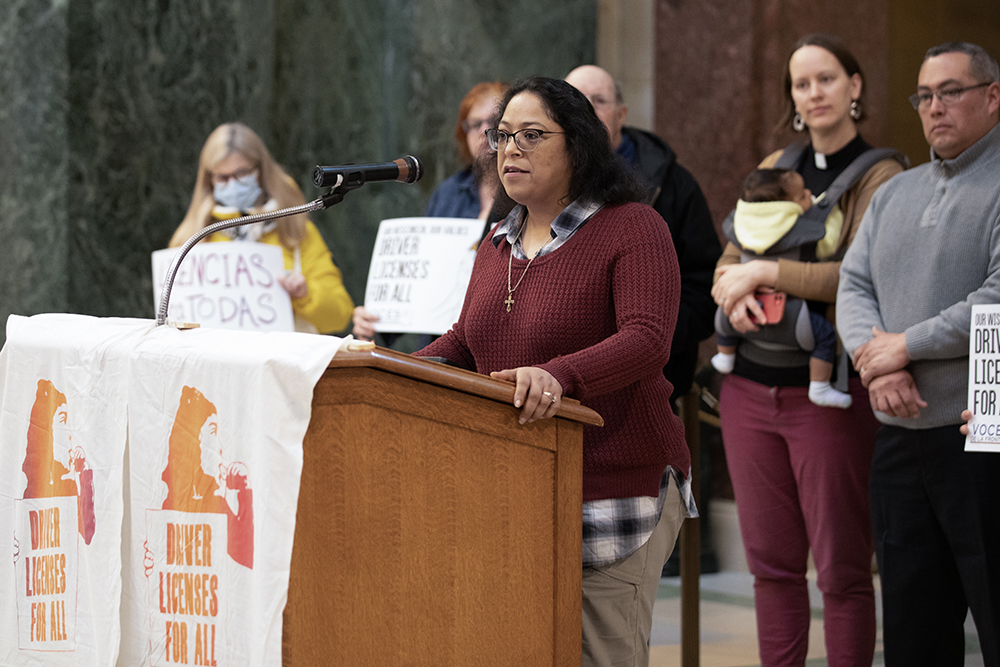A person convicted of domestic violence would be forbidden from owning or purchasing a gun in Wisconsin under legislation unveiled by Democrats on Monday.
The proposal aims to close what one state Supreme Court justice called a loophole in state law that does not define certain disorderly conduct offenses as domestically violent.
Currently, federal law prohibits people who have been convicted of misdemeanor domestic violence-related crimes from owning a gun. Last summer, the Wisconsin Supreme Court unanimously decided that misdemeanor disorderly conduct offenses in Wisconsin aren’t covered by that law, even when threats of violence are included.
News with a little more humanity
WPR’s “Wisconsin Today” newsletter keeps you connected to the state you love without feeling overwhelmed. No paywall. No agenda. No corporate filter.
Democratic state Attorney General Josh Kaul, who represented the government’s losing side in that case, joined Democratic lawmakers to introduce the legislation, which would redefine disorderly conduct related to domestic violence as its own category. That would mean people convicted in those situations would no longer be able to obtain firearms or related permits.
“I believe, and I know the overwhelming majority of Wisconsinites believe, that individuals who have committed domestic violence and been convicted based on their conduct should not have access to firearms,” Kaul said at a press conference. “Access to a firearm can make the difference between whether a domestic violence case results in somebody’s death or not.”
The legislation comes as the U.S. Supreme Court weighs a challenge to a federal ban on gun ownership by people under domestic violence-related court orders.
The group that brought that challenge argues it violates Second Amendment protections, but some justices gave indications during oral arguments that the nation’s highest court might uphold that restriction.
Advocates for domestic violence survivors point to one grim statistic: Women are five times more likely to die at the hands of an abusive partner if the partner has access to a gun.
State precedent and a ‘dangerous loophole’
Last year, the Wisconsin Supreme Court ruled unanimously that state law distinguishes disorderly conduct, even when it involves threats or intimidation, from domestic violence. Because disorderly conduct includes non-violent behavior, that charge cannot be counted as domestic violence under current state law, the court ruled.
That case, Doubek v. Kaul, stemmed from an incident in which a man broke into his estranged wife’s home and threatened to kill her with a piece of lumber, but later left and pleaded guilty to disorderly conduct. The court upheld his right to later obtain a concealed carry permit and purchase guns.
While every justice on the court signed onto the decision upholding his right to carry a weapon, liberal Justice Jill Karofsky called the law behind that right “as nonsensical as it is dangerous” and said the state Legislature could fix what she described as a “dangerous loophole.”
The proposal unveiled Monday would respond to the outcome of that case by distinguishing disorderly conduct that includes violent disturbances from non-violent behavior, and clarifying the definition of a domestic relationship.
In combination, that would functionally determine whether a person’s criminal record included domestically violent disorderly conduct that should make them federally ineligible to carry a gun.
“It is already illegal for individuals who have been convicted of misdemeanor domestic violence to possess a firearm,” said Rep. Lisa Subeck, D-Madison. “But because our state law is not clear … we are leaving firearms in the hands of abusers.”
An unclear path in the Wisconsin Legislature
The bill’s Democratic co-authors said the state legislation is one way to reduce fatal domestic violence, which Sen. Kelda Roys, D-Madison, said is at a 22-year high in Wisconsin.
The bill is “absolutely clear-eyed in the mission to make sure that Wisconsin does not allow people who are victimized by domestic violence, to be victimized by a partner with a firearm that should have been taken away,” said Roys.
Spokespersons for Assembly Speaker Robin Vos, R-Rochester, and Senate Majority Leader, Devan LeMahieu, R-Oostburg, who determine which legislation will appear before the Republican-led Legislature, did not immediately respond to questions about whether the bill will move forward.
Kaul said he hasn’t spoken with Republicans about the legislation’s prospects.
According to the advocacy group End Domestic Abuse Wisconsin, 96 Wisconsinites were killed in domestic violence-related incidents in 2022 — a record high.
And about a third of Wisconsinites, both men and women, have experienced domestic violence at some point, according to the National Coalition Against Domestic Violence.
Wisconsin Public Radio, © Copyright 2025, Board of Regents of the University of Wisconsin System and Wisconsin Educational Communications Board.







